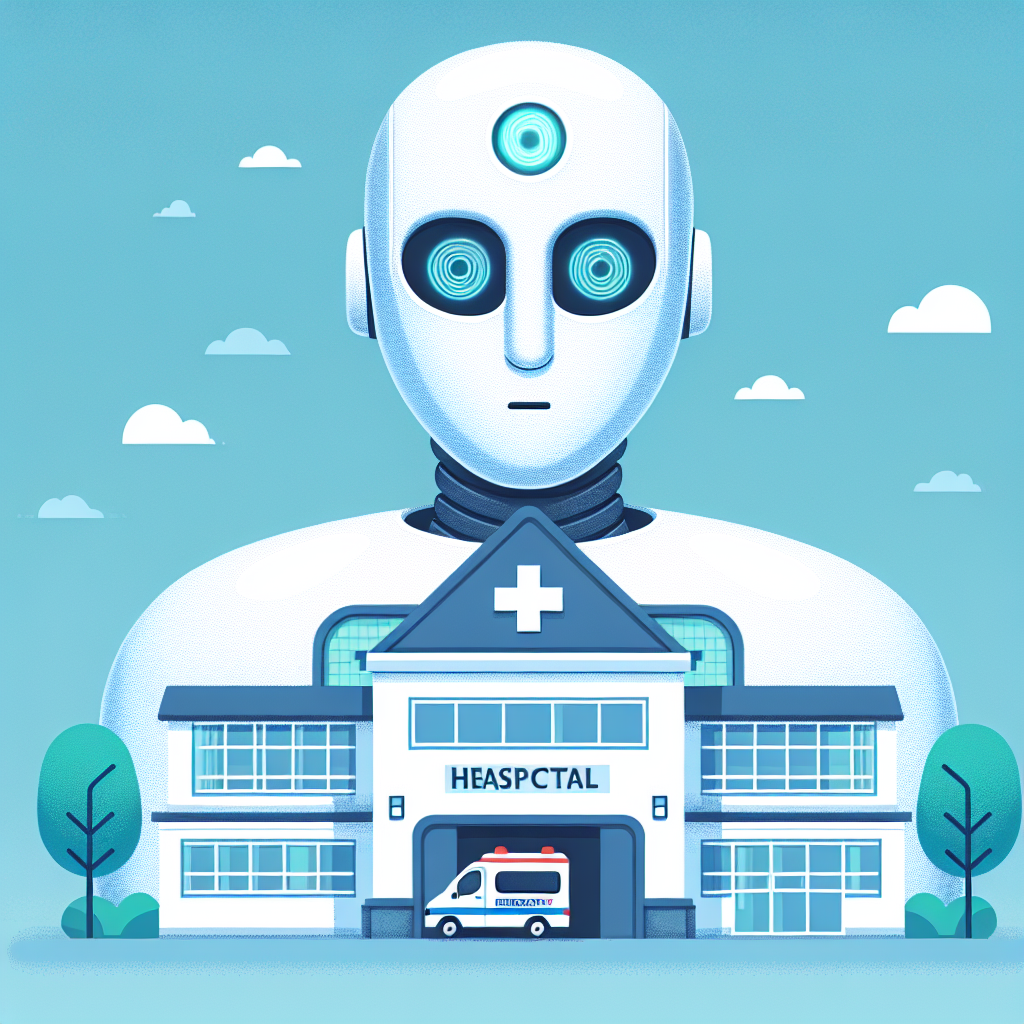Artificial intelligence (AI) has the potential to revolutionize healthcare by improving efficiency, accuracy, and outcomes. However, along with its many benefits, AI also poses certain risks that must be carefully managed to ensure patient safety and privacy. In this article, we will explore some of the potential risks associated with the use of AI in healthcare and discuss strategies for mitigating these risks.
One of the primary risks of AI in healthcare is the potential for bias in algorithms. AI systems are trained on large datasets that may contain biased or incomplete information, leading to biased outcomes. For example, if an AI algorithm is trained on historical data that reflects racial or gender biases, it may perpetuate these biases in its decision-making process. This could result in disparities in healthcare outcomes for certain patient populations.
To mitigate the risk of bias in AI algorithms, healthcare organizations must carefully evaluate the data used to train these systems and implement strategies to ensure that the algorithms are fair and unbiased. This may involve using diverse datasets, regularly monitoring and auditing algorithms for bias, and implementing mechanisms for transparency and accountability in AI decision-making processes.
Another risk of AI in healthcare is the potential for errors or malfunctions in AI systems. Like any technology, AI algorithms are not infallible and may make mistakes or fail to perform as expected. In healthcare, even a small error in an AI algorithm could have serious consequences for patient safety. For example, an AI system that incorrectly diagnoses a patient or recommends the wrong treatment could lead to harm or even death.
To mitigate the risk of errors in AI systems, healthcare organizations must rigorously test and validate these systems before they are deployed in clinical settings. This may involve conducting thorough testing on diverse datasets, performing regular updates and maintenance on AI algorithms, and implementing fail-safe mechanisms to catch and correct errors in real-time.
Privacy and security concerns are also significant risks associated with the use of AI in healthcare. AI systems often require access to sensitive patient data in order to make accurate diagnoses or treatment recommendations. However, the storage and processing of this data raise concerns about patient privacy and the potential for data breaches or unauthorized access.
To mitigate the risk of privacy and security breaches in AI systems, healthcare organizations must implement robust data security measures, such as encryption, access controls, and regular security audits. They must also comply with relevant regulations, such as the Health Insurance Portability and Accountability Act (HIPAA), to ensure that patient data is protected and used responsibly.
In addition to these risks, there are also ethical concerns associated with the use of AI in healthcare. For example, the use of AI algorithms to make life-and-death decisions raises questions about accountability and transparency in the decision-making process. Patients and healthcare providers may be uncomfortable with the idea of entrusting critical healthcare decisions to a machine, especially if they do not understand how the AI system arrived at its recommendations.
To address these ethical concerns, healthcare organizations must engage in open and transparent communication with patients and providers about the use of AI in healthcare. They must also establish clear guidelines and protocols for the use of AI algorithms in clinical settings, including mechanisms for obtaining informed consent and ensuring that patients have the final say in their healthcare decisions.
In conclusion, while the use of AI in healthcare holds great promise for improving patient outcomes and reducing costs, it also poses certain risks that must be carefully managed. By addressing issues such as bias, errors, privacy, security, and ethics, healthcare organizations can harness the power of AI to enhance the quality and efficiency of care while ensuring the safety and well-being of patients.
FAQs:
Q: How can healthcare organizations ensure that AI algorithms are fair and unbiased?
A: Healthcare organizations can ensure that AI algorithms are fair and unbiased by carefully evaluating the data used to train these systems, using diverse datasets, monitoring and auditing algorithms for bias, and implementing mechanisms for transparency and accountability in AI decision-making processes.
Q: What steps can healthcare organizations take to mitigate the risk of errors in AI systems?
A: Healthcare organizations can mitigate the risk of errors in AI systems by rigorously testing and validating these systems before deployment, conducting thorough testing on diverse datasets, performing regular updates and maintenance on AI algorithms, and implementing fail-safe mechanisms to catch and correct errors in real-time.
Q: How can healthcare organizations protect patient privacy and data security in AI systems?
A: Healthcare organizations can protect patient privacy and data security in AI systems by implementing robust data security measures, such as encryption, access controls, and regular security audits, and complying with relevant regulations, such as HIPAA, to ensure that patient data is protected and used responsibly.
Q: What ethical concerns are associated with the use of AI in healthcare?
A: Ethical concerns associated with the use of AI in healthcare include questions about accountability and transparency in decision-making, concerns about entrusting critical healthcare decisions to a machine, and the need for clear guidelines and protocols for the use of AI algorithms in clinical settings.

